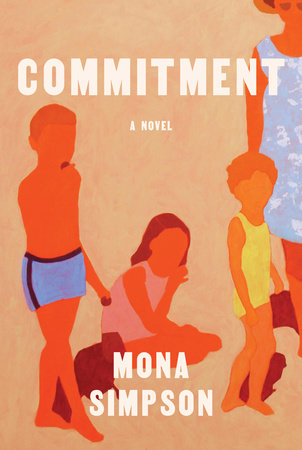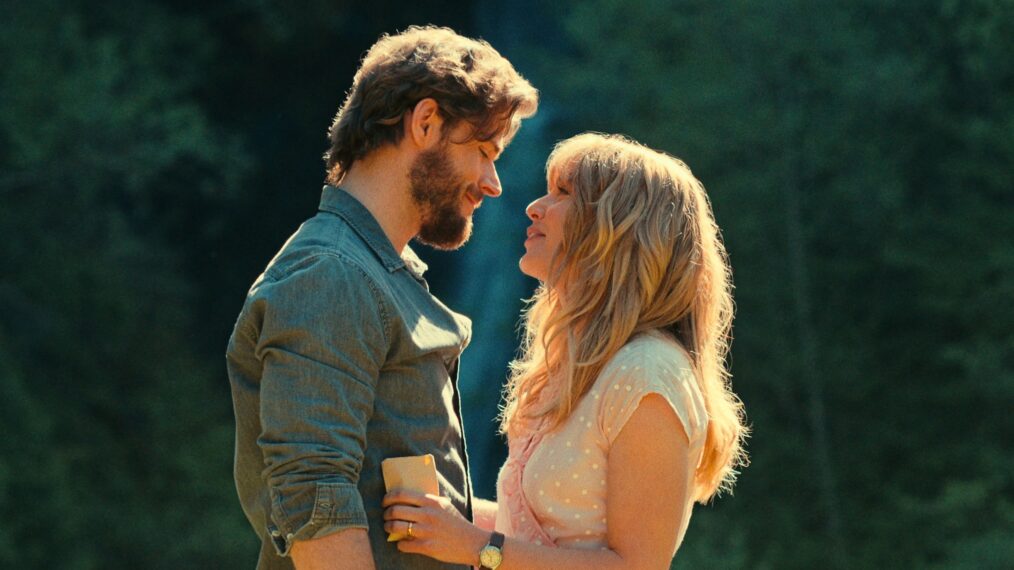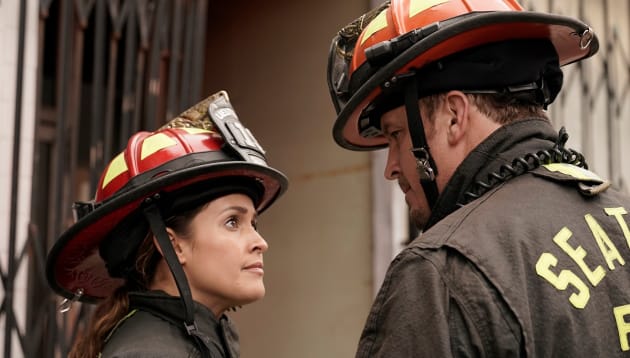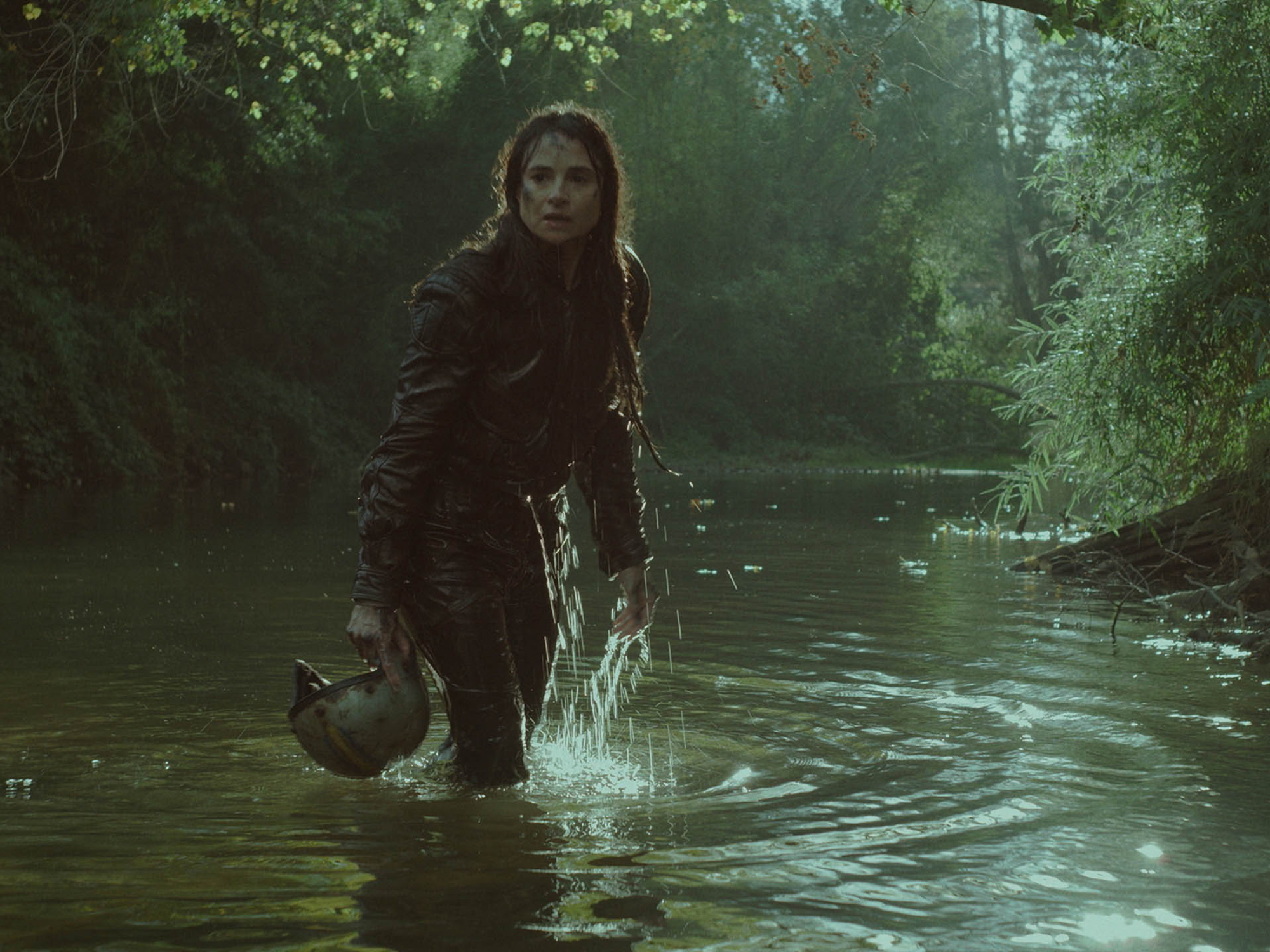
The following is from Mona Simpson’s Commitment. Simpson is the best-selling author of Anywhere But Here, The Lost Father, A Regular Guy, Off Keck Road, My Hollywood, and Casebook.She has received a Whiting Writers’ Award, a Guggenheim fellowship, a Lila Wallace-Reader’s Digest Writers’ Award, and an award from the American Academy of Arts and Letters. She is on the faculty at UCLA and also teaches at Bard College. In 2020, she was named publisher of The Paris Review.
Walter stood by the highway, weeds slender as thread around his boots. He wasn’t scared of hitching anymore. Enough had already happened.
The minute he stepped through the back door, after midnight, the bungalow felt infected. Floorboards tented up. His chemistry grade card, curled at the edges, remained on the refrigerator his last visit, from months ago. Everyone was asleep. Light from the boarder’s lava lamp leaked from under her door. All there was to eat was ice cream. He finished a pint.
He slipped into the room he used to share with his little brother and lay on his old bed, hearing Donnie breathe. Why hadn’t they let him come before? His sister said it had been their worst Thanksgiving. The hospital turkey was orange. He’d never thought that holidays were any big deal. Well, it turned out they were.
He got up, tore down his grade card, and threw it out.
The next morning, Lina and Donnie looked like themselves, only less good versions.
Norwalk, when he opened Julie’s car door, felt hotter than any place should be in December. Everyone in Berkeley hated LA, as if it were the bottom of the state, where everything had gone wrong. Strip malls. Freeways. Benighted parents. Smog. For the first time, Walter saw Northern California’s collective point.
The grounds of the hospital looked enormous and shabby, like a neglected park, probably a hundred acres without any apparent plan. What had happened to the Kirkbride Plan he’d read about? Buildings of wildly different styles had been thrown up on the vast lawns – which up close proved to be crabgrass – their only commonality being poor construction values. Trees grew randomly. He followed his sister and brother past a clutch of women, smoking.
His mom, when he finally saw her, actually looked mentally ill. But her posture lifted as she recognized him. She patted the chair next to her. “This is mine,” she said to the woman beside her.
“The one she’s proud of.” Lina picked up a laundry hamper with angular bitterness.
“She’s doped up,” Walter whispered, but he knew it wasn’t just that. He felt guilty knowing, but also pleased. “Let’s take a walk,” he said, pulling his mom up.
“She comes along.” His mom nodded toward the woman beside her.
“Come on. You can take a walk with your son.”
“She’s on thirty-minute check,” said the woman, who turned out to be a nurse named Shirley, smiling but definite.
“So we’ll go for thirty minutes.” Had they examined her for something like a brain tumor? He planned to ask what happened. He needed to get her alone. Donnie and Lina didn’t know about the pills.
“Julie told me.” It came out sounding like he was mad. He hadn’t wanted to sound mad.
“What?” She tripped over a root. She wasn’t wearing regular shoes, he saw now; she had something gauzy and cotton on her feet.
“The pills.”
“Oh, that. I was feeling down.”
“You have to think why.”
“It’s only sometimes.”
When did she get like this? The place wasn’t what he’d expected, after the book he’d read. Where were the vistas? The orchestra pavilion? Inside the fenced perimeter, a factory spewed gray smoke. They passed a coffee stand that sold muffins wrapped in too many layers of cellophane. At one point, his mom jerked and ducked, as if dodging an attack. But there was nothing. Not even a bee.
They stood under an enormous copper beech. Maybe a hundred years ago it had grown from one blown seed. His mom’s hand was sharp on his arm. He loved her and that love exhausted him.
“I’m trying to hold on to my mind,” she said.
“I know, Mom. You have to keep trying.”
He was relieved when Shirley ran over to say it was thirty minutes. “They like to get back to the ward,” she said.
They. She’s not a they, he thought.
Back in the big room (the parlor, Shirley called it) where chairs faced every which way, his mom rested a hand on her belly, which was bigger than it had been.
“It’s the medicine,” Shirley said. “Bloating.”
“I’m like a Biafran.”
Walter laughed, glad his mom could still make a joke. Lina returned with a hamper of clothes, neatly folded. Back in real life, their mom had screamed at her to pick up things from her floor. Here, she held up a tiny garment. Her mother’s good blouse had been shrunk in the hospital laundry to a doll’s size. Next week, Lina said, she’d bring iron-on name labels.
Julie summoned Walter for what she called the grand tour. They walked in the hot, stinging air as she pointed out buildings, which he couldn’t have cared less about, the sexes segregated, Julie said, except for the open ward, where his mother could eventually be transferred.
Eventually. How long was Julie thinking she’d be here?
“That one’s for older women. Menopause Manor, they call it.” Julie walked briskly. “Your brother and sister shouldn’t really be by themselves. If Child Protective Services knew, they’d have social workers all over us. One already came. I think that boarder must have called.” She’d told Donnie and Lina that they could move into her place but they didn’t want to, at least not yet.
“Would you ever consider moving in there?”
“Me?” She had a lease, she said, and two cats!
Were cats not allowed? The four years Walter lived in the bungalow, he’d never seen the landlords. But Julie had a life—cats, an apartment, friends, even a book club—and she was electing to keep its small pleasures. Later he winced, remembering his presumption.
“This is the beauty shop,” Julie said, and inside what looked like a garden shed stood two old pedestal sinks. “They open Thursday mornings. I had my hair done once. They don’t get hot water.”
A young man Walter’s age, wearing a vest like someone a generation older, passed, taking small steps, with his arms out to the sides, as if for balance. He made a buzzing sound.
“Trent,” Julie said.
The smokestack expelled steam. What was a factory doing here?
Julie pointed. “There’s the head doctor’s office.”
Walter wanted to meet the doctor. A middle-aged secretary sat eating a sandwich at her desk. She waved him in; he was surprised how easy it was.
The doctor had close-cropped hair. Glasses. A narrow face. Walter said he wanted to ask about his mom.
“Your mother is . . .” They made small talk while the secretary squatted at a file cabinet, her heels lifting out of her shoes, then delivered a folder.
“Diane Aziz. Yes. You and I spoke on the phone. I have a lot to learn about her yet. The voices seem less insistent. We have conversations about trees. There are hundreds of different genus here. She’s the only patient who’s ever taken an interest. Your sister and brother come every week. That helps. And you’re at Berkeley? How do you like it? You have friends?”
“A few.”
“Good, that’s important. A girlfriend?”
“No.”
“Your father’s foreign, isn’t he?”
“He’s Afghan but he lives here now. I don’t know where.” Then Walter asked, “What exactly does my mom have?”
The doctor started writing something on a piece of paper.
Walter stood to examine a framed black-and-white photograph of a brick building that looked like a castle. A name in silver cursive said: Greystone.
“That’s one of your Kirkbrides,” the doctor said, standing up and handing Walter the paper, folded over.
“I thought it was an orphanage.” Walter’s mom had been left in an orphanage when her own mother went into the hospital. She had driven them once to see it, he said. They sat in front of the old brick building, which was empty by then. Parked there, her memories of the orphanage sounded fond. A young nun snuck a record player into the dormitory and taught them the Watusi. Every year at Christmas, his mom sent that nun, now in an old nuns’ home, a card with a check. She was enraged that the Church allowed priests to own houses and boats and left the nuns impoverished.
Outside the window, a redheaded girl streaked by on a bike.
“A lot of Kirkbride asylums are empty now, too,” the doctor said. “When the state opened this hospital, they had a parcel twice the size of what we have now. They kept their own cows and chickens, and planted kitchen gardens, orchards. The patients worked—either in the laundry or outside. The place was almost self-sufficient.”
“Like a commune,” Walter said.
“But we can’t do that anymore. There was a case. Alabama cut their cigarette tax, which paid for mental health. So they had an overcrowded hospital, five thousand people, three doctors, and ended up with a lawsuit. The newspaper compared the conditions to a concentration camp. And what came out of it is that now you can’t have uncompensated patient labor.” They stood before the photograph. “Greystone is where I grew up,” the doctor said. “My parents were psychiatrists. Family business.”
“I’m not sure if I want to be a doctor or an architect. Maybe I’ll design hospitals.”
“You could be the Kirkbride for our time. You’ll see as you visit your mom. It’s not so bad. We have movie nights. We hold dances in the spring and fall.”
Em Ball had located a biography of Dr. Kirkbride. After his first wife died, he married a former patient. Walter wondered if Dr. Moss was married.
“I read that Kirkbride ended up marrying a patient,” Walter said.
“An ex-patient, I think she was. They say his life exemplified the Wild West of early psychiatry— he was shot by one patient, sued by another, and married a third.”
Walter’s mom was a pretty woman. Maybe she and the doctor would fall in love. That would be a good end to her story.
__________________________________
Excerpted from Commitment by Mona Simpson. Copyright © 2023 by Mona Simpson. Excerpted by permission of Alfred A. Knopf, a division of Penguin Random House LLC. All rights reserved. No part of this excerpt may be reproduced or reprinted without permission in writing from the publisher.
























































